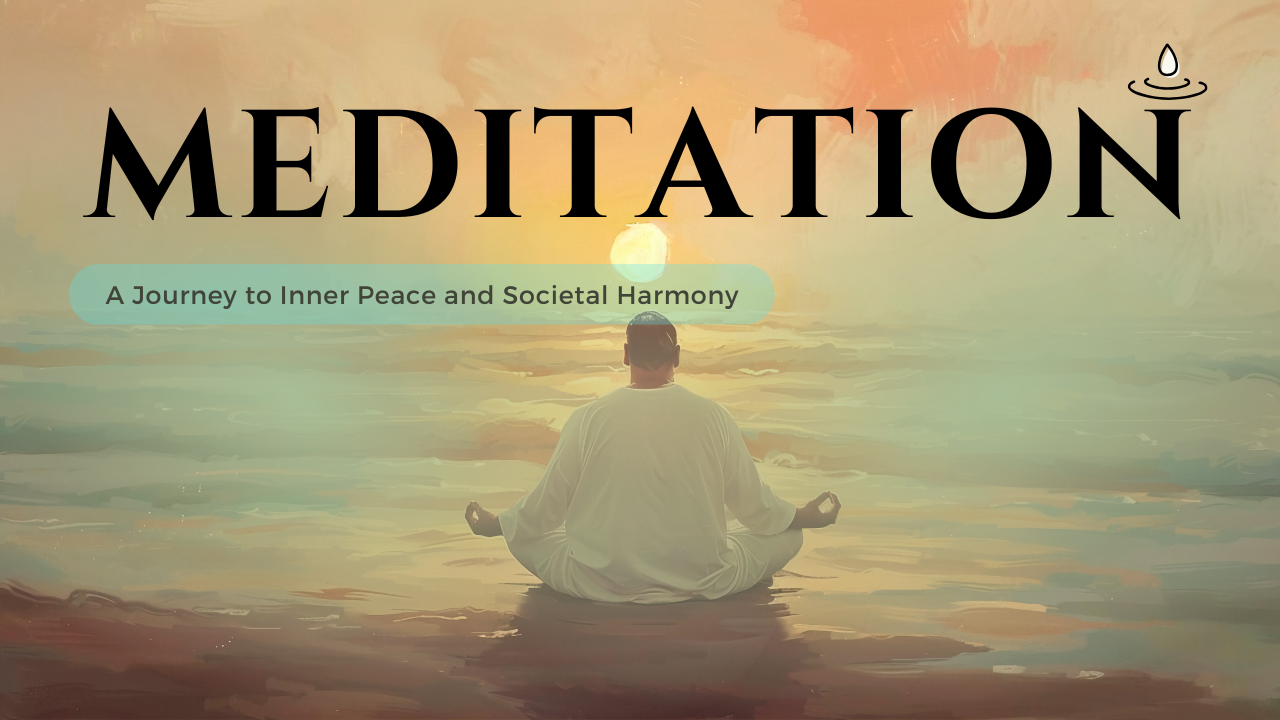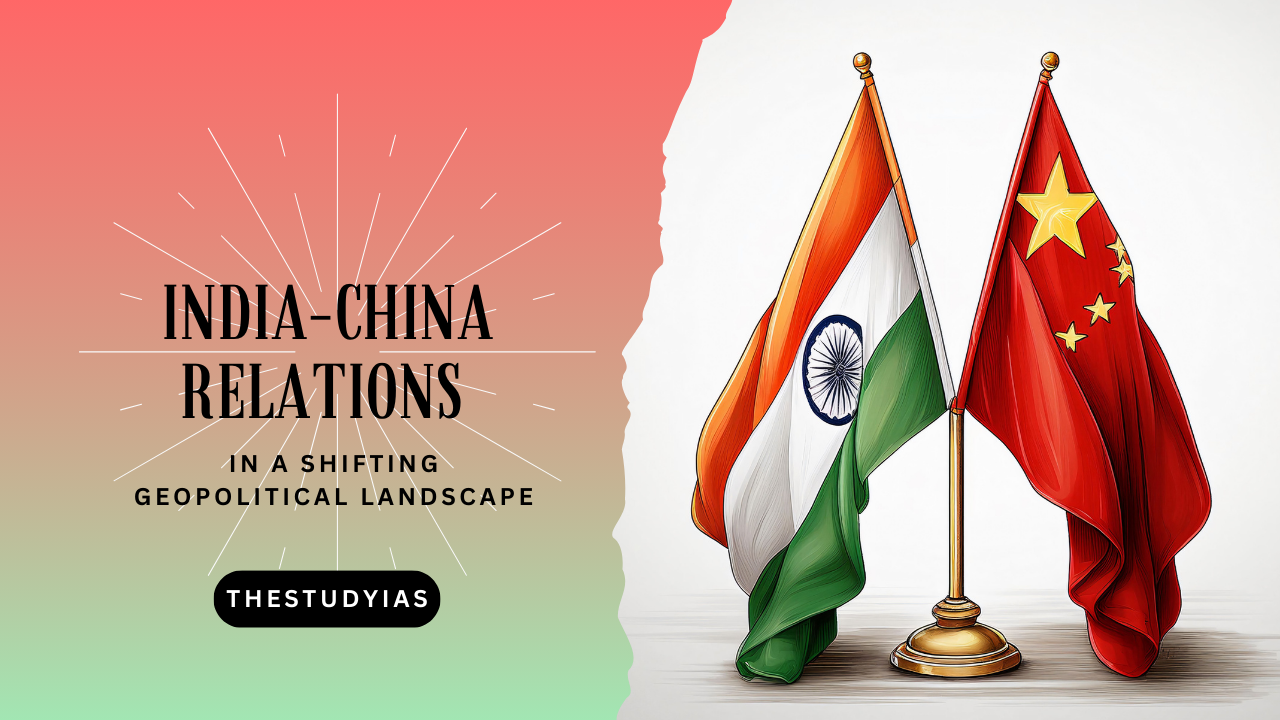Meditation: A Journey to Inner Peace and Societal Harmony
Introduction – Meditation
Meditation is a timeless practice that offers immense benefits to both individuals and society. It is more than just a method to relax; it is a path to inner peace, resilience, and self-discovery. By focusing on the present moment, meditation helps us release stress, let go of negativity, and build a deeper connection with ourselves and others. Recognising its transformative power, the United Nations has declared December 21, the Winter Solstice, as World Meditation Day, emphasising its role in addressing modern challenges. Through regular meditation, we can unlock our potential and create a more balanced and harmonious world. This essay explores how meditation transforms lives and fosters a sense of unity and peace.
Definition and Purpose
Meditation is a special practice that helps us feel calm and happy. It is the art of letting go of things that bother us. When we meditate, we stop putting in too much effort, we let go of anger about things that happened in the past, and we do not worry about what might happen in the future. Instead, we focus on what is happening right now.
Being fully present in the moment is an important part of meditation. It means paying attention to our breathing, how our body feels, and the sounds around us. Meditation teaches us to accept the present moment just as it is, without trying to change it. By doing this, we feel more peaceful and less stressed.
When we meditate, we can experience the moment deeply. It helps us understand ourselves better and appreciate the world around us. Meditation is like giving our minds a rest, and it makes us feel refreshed and happy. Anyone can practice meditation, and it is a wonderful way to stay calm and relaxed.
What Meditation Is Not
Meditation is often misunderstood, and it is important to know what it is not. First of all, meditation is not about focusing hard on our mind or concentrating on one object. It does not require us to strain our brain or force ourselves to think about something specific. Instead, meditation is about being calm and relaxed, allowing our thoughts to come and go naturally.
Meditation is also not the same as visualisation. Visualisation means imagining something, like a scene or a goal, and it often requires effort. Meditation, on the other hand, is about letting go of effort. We do not need to imagine or create anything in our mind while meditating.
Some people think that meditation is about stopping or eliminating thoughts. That is not true. Thoughts are a natural part of meditation. Instead of trying to block them, we simply notice our thoughts and let them pass, like clouds moving in the sky.
Finally, meditation is not connected to any specific religion or belief system. People from all backgrounds can practice it. It is a universal way to feel peaceful and present in the moment. Meditation is for everyone who wants to relax their mind and find inner peace, no matter who they are or what they believe.
Three Principles of Meditation
Meditation is a wonderful practice that is guided by three simple principles that can help us understand its true meaning and purpose.
The first principle is “I am nothing” (Akinchan). This does not mean we are unimportant or useless. Instead, it reminds us to let go of our ego—the part of us that constantly wants to prove we are better than others. When we think, “I am nothing,” we become humble and open. It helps us see the world with kindness and without judgment.
The second principle is “I need nothing” (Achah). This means that during meditation, we do not focus on wanting or desiring anything. Whether it is a toy, a new gadget, or even approval from others, meditation teaches us to feel content and happy just as we are. By realising we do not need anything to feel complete, we find inner peace.
The third principle is “I am going to do nothing” (Aprayatna). Meditation is not about working hard or trying to achieve something. It is about letting go of effort and simply being in the moment. When we stop trying to control everything, we feel more relaxed and connected to ourselves.
Together, these principles make meditation a unique and powerful experience. They help us let go of ego, desires, and effort, allowing us to feel calm and at ease. By practicing these principles, we can find true happiness, not from outside things, but from within ourselves. Meditation shows us that sometimes, doing nothing is the best way to feel everything. It is a beautiful way to enjoy life and feel peaceful.
Benefits of Meditation
Meditation is a simple practice with amazing benefits for both individuals and society. It helps us feel calm, focused, and happy. How meditation can make life better for everyone needs to be explored.
For Individuals: Meditation improves how we see the world and how we express ourselves. It sharpens our perception, making us more aware of our surroundings and emotions. This helps us communicate better and understand others more deeply. It also encourages natural mindfulness, which means living in the present moment instead of worrying about the past or future.
Meditation fills us with positivity and enthusiasm. It can help us feel joyful and excited about life. It also promotes healing by calming the mind and body, which is especially helpful when we feel sick or stressed. Over time, meditation prevents stress from building up and helps us release any tension we already have. This leads to happiness and a sense of fulfillment. It even heightens our senses and intuition, making us more connected to ourselves and the world around us.
For Society: Meditation is not just personal—it also benefits society. When people meditate, it creates a sense of togetherness. It helps us bond with others through love and understanding. By meditating together, people can form stronger relationships and deepen their connections.
Meditation also bridges divides in society. It promotes harmony by helping people see past their differences. Whether it is cultural, social, or personal, meditation helps dissolve barriers and builds a sense of unity.
All in all, meditation offers a wide range of benefits. It makes us better individuals by sharpening our minds, reducing stress, and making us more positive and mindful. It also brings people together, helping us create a more loving and peaceful society. Meditation is a gift that anyone can practice, and its impact can change the world for the better.
Practice and Technique
Meditation is a simple and enjoyable practice that anyone can try. It helps us feel calm, focused, and happy. Here is how we can get started and make it a part of our daily routine.
To begin, we should find a quiet place where we will not be disturbed. We should sit comfortably in a relaxed position and close our eyes. Our body should be allowed to relax, letting go of any tension or stress. The key is that we should stop “trying” too hard—just let ourselves slide into the practice naturally and effortlessly. Beginners should consider going for guided meditation, as it can be very helpful. They should listen to a recorded meditation or join a class to learn the basics.
It is a good idea for us to meditate for 15 to 30 minutes every day. We should choose a time when our stomachs are empty, such as before a meal or a couple of hours after eating. We should focus on being consistent, as it is more important than meditating for a long time. We should try to meditate at the same time each day to build a habit.
Sometimes, we should consider trying longer meditation sessions with the help of an expert. We should also join group meditations, as they can make the experience deeper and more meaningful. Meditation is easy for us to practice and can bring peace and happiness into our lives!
Advanced Aspects of Meditation
Meditation is not only about relaxation; with regular practice, it can open the door to advanced experiences and deeper understanding. These advanced aspects bring profound changes to the way we see ourselves and the world.
As we meditate regularly, we may reach what is called cosmic consciousness. This is a state where we feel deeply connected to the entire universe, as if the whole cosmos is a part of us. In this state, we experience a sense of boundless joy that nothing can shake, no matter what challenges life brings. It also helps us build resilience—the ability to stay strong and calm even during difficult times.
Another beautiful aspect of meditation is the balance it cultivates between rest and action. During meditation, we experience deep rest. This rest allows us to embrace the perfection of the present moment, feeling content and peaceful just as we are. When we return to our daily activities, meditation sharpens our perception. This helps us see what needs improvement and address imperfections skillfully and with confidence.
In this way, meditation brings harmony to both our inner and outer worlds. It is a journey that takes us beyond simple relaxation, offering unshakable joy, connection with the universe, and the ability to live a balanced and meaningful life. With consistent practice, we can discover these higher aspects of meditation and experience its true potential.
World Meditation Day
The United Nations has declared December 21, the Winter Solstice, as World Meditation Day to recognise the importance of meditation in solving modern-day challenges. Meditation is more than just a way to relax; it is a transformative practice that helps us discover our infinite potential. It goes beyond individual benefits and offers a path to create a more peaceful and harmonious world.
When we meditate regularly, we can build positivity and resilience, which help us face life’s difficulties with strength and calmness. Meditation also deepens our connection with ourselves and others, making our relationships stronger and more meaningful. By making meditation a part of our daily lives, we can not only improve ourselves but also contribute to a better world for everyone.
Conclusion
Incorporating meditation into our lives is a simple yet powerful step toward personal and collective well-being. It not only brings calmness and clarity but also strengthens our bonds with others, fostering harmony and understanding in society. Meditation teaches us that change begins within and spreads outward, creating ripples of positivity in the world. As we embrace this practice, we not only improve our own lives but also contribute to a brighter, more peaceful future for all. By making meditation a part of our daily routine, we take a step closer to realising our potential and building a world filled with joy and unity.
Subscribe to our Youtube Channel for more Valuable Content – TheStudyias
Download the App to Subscribe to our Courses – Thestudyias
The Source’s Authority and Ownership of the Article is Claimed By THE STUDY IAS BY MANIKANT SINGH





